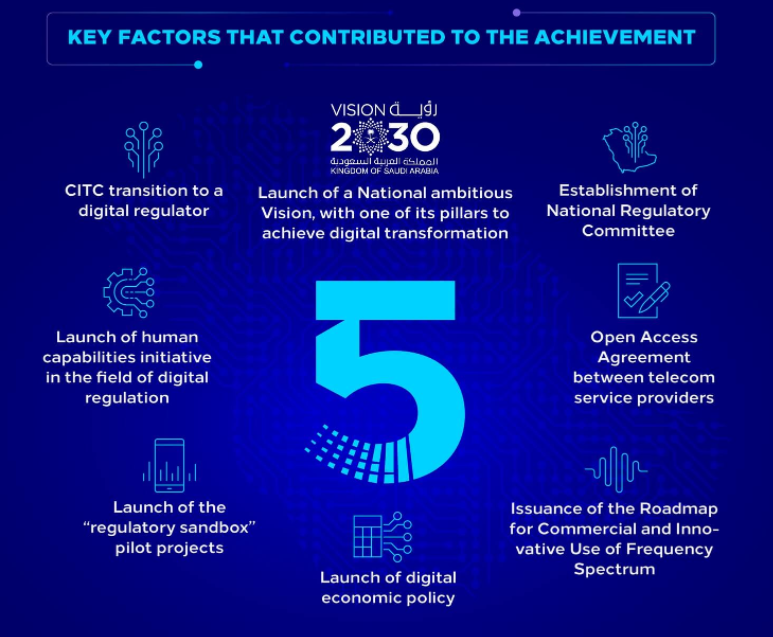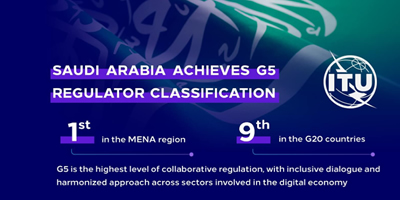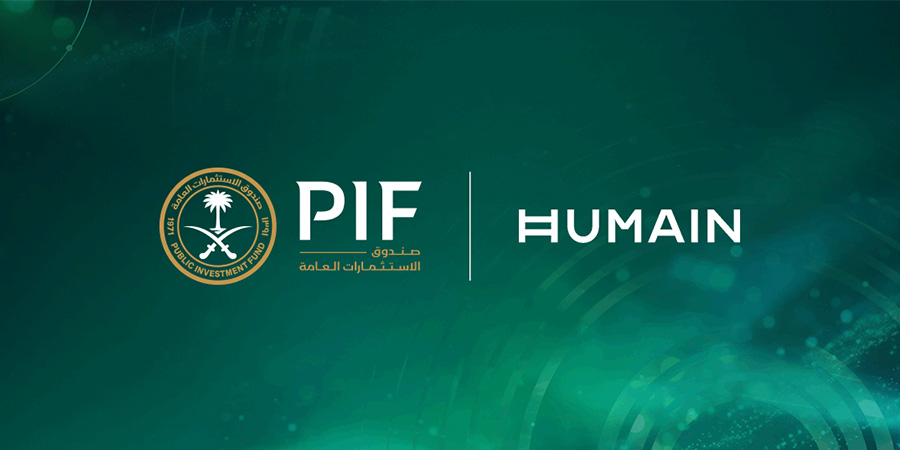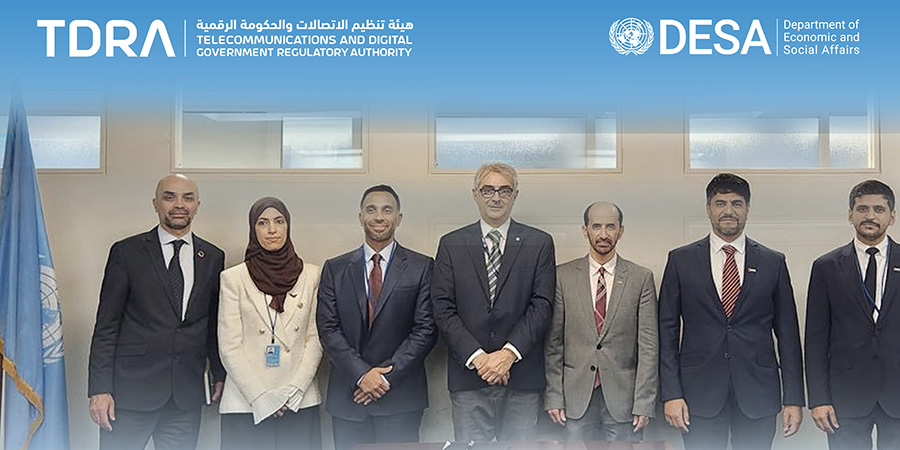
Saudi Arabia has been recognized as the fifth-generation (G5) regulator by the International Telecommunications Union (ITU), the United Nations body responsible for activities related to information and communication technologies (ICT).
The G5 classification status highlights Saudi Arabia’s emergence as a world-class digital nation.
The announcement was made during the Global Symposium for Regulators’ virtual event.
The Communications and Information Technology Commission’s (CITC) recent transformation from a telecom regulator to a digital regulator has paved the way for the next generation of ICT regulation in the Kingdom. CITC has launched several initiatives enabling a cross-sectoral regulatory environment, boosting investments in the sector and supporting innovation and digital transformation across adjacent sectors. The achievement of the “gold standard” for policy and regulatory collaboration came two years ahead of the 2023 target date outlined in the Kingdom’s ICT Sector Strategy 2023, and only one year after being classified as a fourth-generation regulator.

Significant initiatives for collaborative regulation with all stakeholders in the Kingdom’s digital ecosystem include the Kingdom’s Digital Economy Policy, the creation of the Digital Government Authority, the launch of pioneering regulatory sandbox projects, the Fixed Broadband Open Access initiative, the adoption of the WiFi-6 becoming the first country in the EMEA region to do so, and the launch of the “CITC Roadmap for Commercial and Innovative Use of Frequency Spectrum 2021-2023″, among others.
Commenting on the recognition, Mohammed Al Tamimi, governor of CITC said, “The ITU’s G5 classification is one of the biggest indicators of success for Saudi Arabia’s digital ecosystem to date, and we thank our partners and stakeholders across sectors for their contributions to this significant achievement and for embracing a spirit of togetherness in this digital era.”
“Saudi Arabia’s ICT sector has become a significant player regionally and globally, witnessing rapid transformation driven by flexible, incentive-based, innovative regulations. In just five years, we’ve witnessed internet speeds increase by 1,589%,” he added.

The ITU’s ICT Regulatory Tracker is a tool used to classify the maturity of ICT regulatory frameworks across 193 countries. It is made up of 50 indicators divided into four pillars: regulatory authority, regulatory mandate, regulatory regime, and competition framework. The tool tracks countries’ progress from first-generation regulation (G1), in which regulated public monopolies employ a command-and-control approach, to fifth-generation regulation (G5), the highest level of regulatory framework in which regulatory agencies collaborate with a wide range of stakeholders to develop a harmonized approach across sectors now reliant on ICT.
The ITU has praised the Kingdom for effectively overcoming digital-related challenges, displaying one of the world’s highest levels of organizational maturity, while supporting proactive innovation, the adoption of emerging technology, and the growth of the digital economy.







